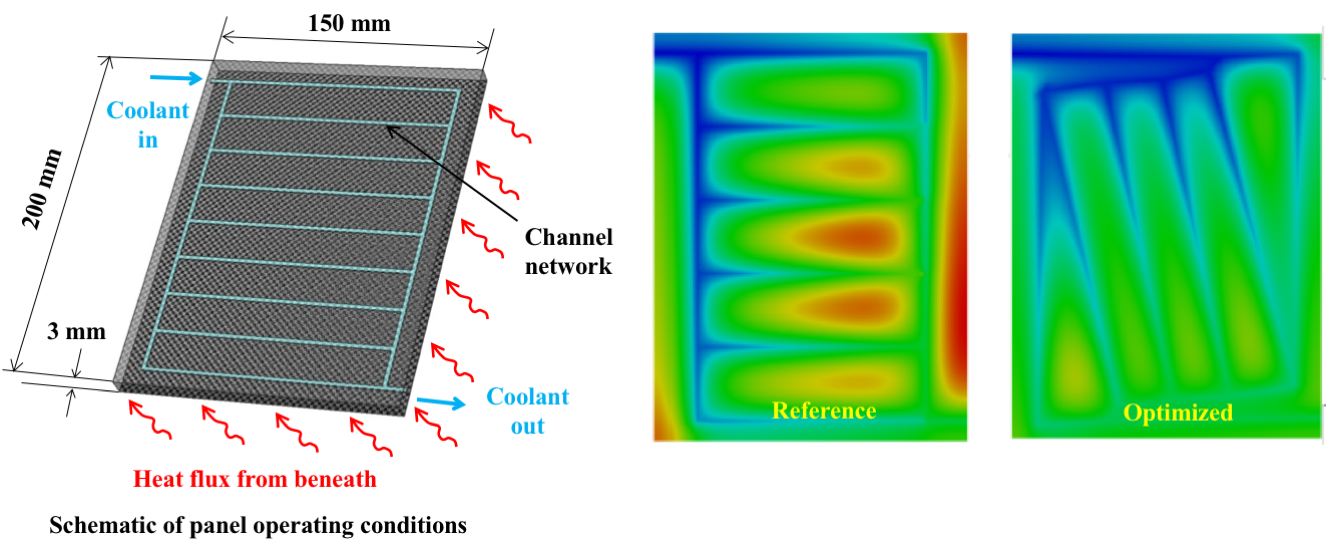 MEM Seminars: Microstructural design of a microvascular composite: a gradient-based shape optimization scheme using an Interface-enriched GFEM
MEM Seminars: Microstructural design of a microvascular composite: a gradient-based shape optimization scheme using an Interface-enriched GFEM
Prof. Ahmad R. Najafi will give a presentation at the MEM Seminars in the Department of Mechanical Engineering and Mechanics at the Drexel on Wednesday, December 1, 2017.
Title:
Microstructural design of a microvascular composite: a gradient-based shape optimization scheme using an Interface-enriched GFEM
Abstract:
This work is inspired by the recent development of a novel manufacturing technique for a new class of micro-vascular composites to be used for high-temperature applications. In this method, micro-channel networks are created with the aid of sacrificial fibers incorporated directly into the 3D fabric and eventually vaporized at the conclusion of the resin transfer modeling process. The ability of the method to create complex embedded networks of micro-channels creates an interesting challenge for computational schemes aimed at modeling the impact of the microchannels on the thermal response of the composite, and especially, at optimizing the network itself. The emphasis of this presentation is placed on this latter topic, i.e., the formulation, implementation, verification and validation of a novel scheme for microstructural optimization of heterogeneous materials. In conventional (Lagrangian) finite element treatments of shape optimization, the boundary and finite element mesh continuously move during the optimization process from an initial guess to an optimal design in order to minimize (maximize) a cost function subjected to appropriate design constraints. In case of large shape changes, the mesh distortion taking place during the optimization process deteriorates the accuracy of the finite element solution. To eliminate the need for remeshing, several methods including mesh-free methods, fictitious domain methods (such as material projection method over a fixed Eulerian mesh), and the generalized/extended finite element method (GFEM/XFEM) have been applied to shape optimization problems. Here, we present a novel gradient-based optimization scheme based on the Interface-enriched Generalized Finite Element Method (IGFEM), taking advantage of the stationary nature of the non-conforming mesh, which leads to eliminating mesh distortion. In this method, only the enrichment (interface) nodes move, appear or disappear during the shape optimization process. Using a multi-physics IGFEM thermal/structural solver combined with a gradient-based shape optimization, we investigate the microstructural optimization of various heterogeneous materials, with emphasis on the design of the microchannel networks embedded in the high-temperature composite panels. The optimization relies on an efficient analytical shape sensitivity estimation of the dependence of the objective functions on the design parameters that define the material’s microstructure.
